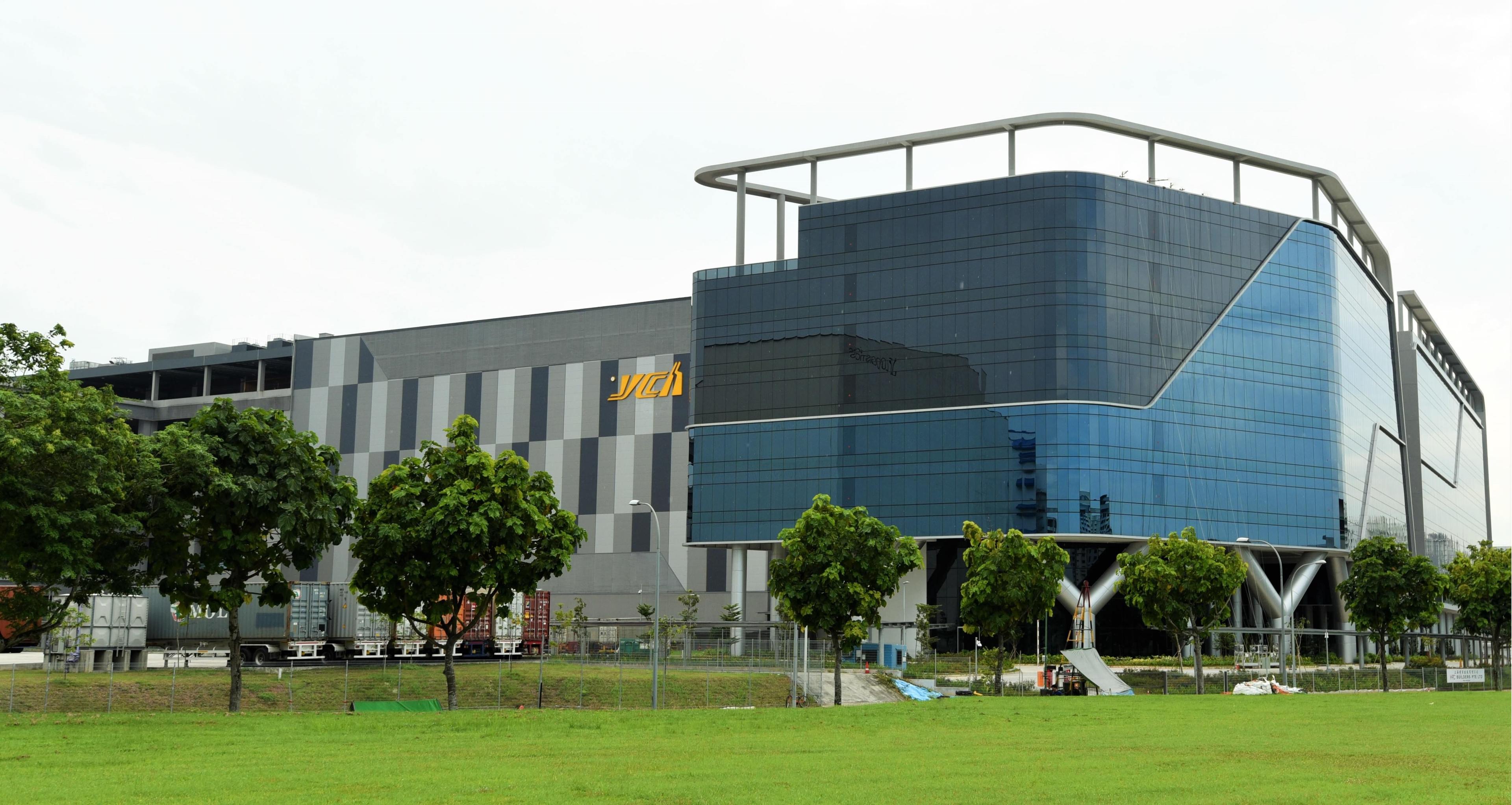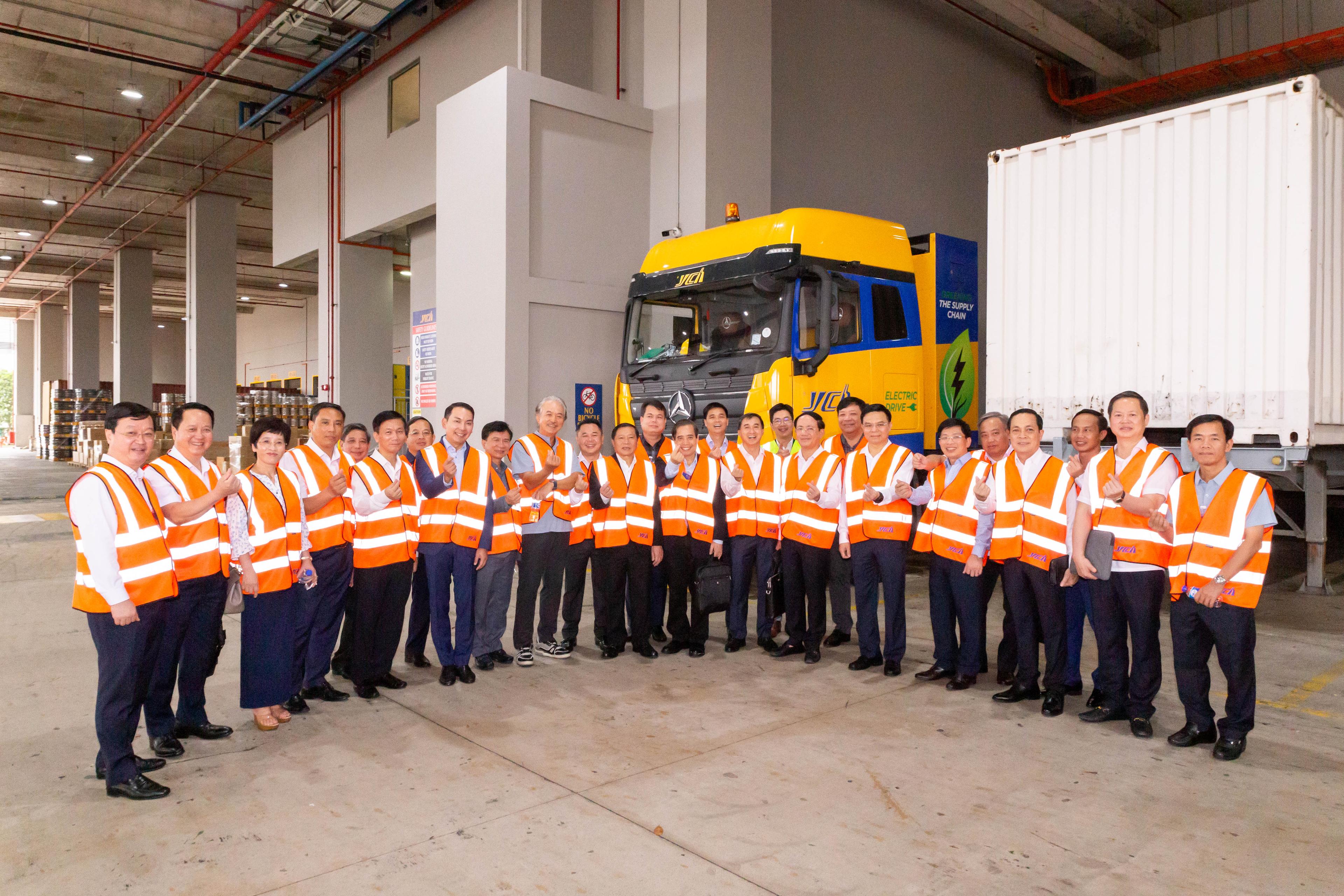YCH Group: Strategic approach to sustainability and achieving net-zero emissions
YCH Group (YCH) is making significant strides towards its ambitious net-zero emissions targets. YCH emphasises the importance of effective carbon accounting, keeping abreast and staying ahead of sustainability developments to build a solid foundation for achieving its sustainability targets.
YCH, Singapore’s largest homegrown end-to-end supply chain management and logistics company, has embarked on an ambitious journey to achieve net-zero Scope 1 and 2 emissions by 2040. With operations in more than 100 cities, YCH has implemented extensive efforts to advance sustainability and maintain a competitive edge in an increasingly environmentally conscious market.
In this case study, YCH shares the key lessons from their journey:
- Viewing sustainability through a long-term strategic lens to secure leadership buy-in
- Proper planning and analysis to instil confidence in achieving ambitious long-term goals
- Leveraging digital solutions to improve efficiency and scale up the carbon accounting process

YCH's Supply Chain City® in Singapore holds both BCA Green Mark Platinum and LEED Platinum certifications (Image: YCH)
Planning for the future brings clarity to today’s decision-making
Facing a competitive business environment and rising business costs, SMEs often view sustainability as an operational cost rather than a strategic investment. However, identifying long-term business goals and forward planning for the future has helped YCH to overcome short-term concerns and make the strategic decision to set a target of becoming net-zero by 2040.
Understanding global sustainability trends and customer commitments
When setting a target for its sustainability efforts, YCH started by conducting a comprehensive global and regional analysis of key sustainability trends and regulatory developments. The scan revealed a growing momentum towards net-zero commitments, with logistics businesses increasingly called upon to offer low-carbon solutions and services that align with emerging regulations and customers' efforts to reduce supply chain emissions.
Faced with these trends, YCH made the decision to position itself as an industry leader by committing to emissions reductions. While this entails much work to track and manage emissions across its operations, such efforts are essential for YCH to maintain a competitive edge in a rapidly-changing market.
Dr Yap Kwong Weng, CEO of Vietnam SuperPort™, a multimodal logistics port owned by YCH and Vietnam's T&T Group, and Head of Strategy, Sustainability, and Communications at YCH, highlighted the importance of forward-thinking leadership to overcome these challenges. “Sustainability requires commitment and a clear long-term vision. While the transition to net-zero involves upfront costs, it is essential to recognise these efforts as investments that drive long-term value,” Yap remarked.

The 'Envisioning the Future of Vietnam SuperPort™' event which revealed its goal to be Southeast Asia’s first net-zero hub. (Image: YCH)
Assessing financial and technical feasibility
A cornerstone of YCH's target-setting process was the rigorous evaluation of the financial and technical feasibility of sustainability initiatives required to achieve net-zero emissions. Extensive research and financial modelling was conducted on possible low-carbon technologies, before they were put through a prioritisation exercise. Sunil Nambiar, Head of Operations for Strategy, Sustainability, and Communications, and Deputy Head of Sustainability at YCH, noted: “We carefully assessed the financial and operational viability of each initiative, focusing on those that could deliver tangible results in the short term while supporting our longer-term decarbonisation goals.”
The initiatives identified from the exercise provided confidence for YCH to set ambitious interim and net-zero targets towards decarbonisation. YCH also engaged an external sustainability consultant to validate and refine their decarbonisation plans, further instilling confidence in their ability to achieve their carbon commitments.
YCH has undertaken several notable efforts in their decarbonisation journey. In 2022, they completed the installation of a 3.8 megawatt peak solar farm atop YCH’s Supply Chain City flagship building, replacing around 20% of our electricity consumption with renewable energy and avoiding about 1.2 million kg of CO2e (carbon dioxide equivalent) emissions a year, which is equivalent to the impact of taking more than 250 cars off the road. Constructed with an eco-friendly architectural design, Supply Chain City has also been certified BCA Green Mark (Platinum) and US Green Building Council LEED Platinum. Additionally, YCH introduced Singapore's first electric prime mover truck into its operations and aims to electrify their vehicular fleets by 2040. Furthermore, they have optimised vehicle routes to improve efficiency and reduce emissions.

Executive Chairman Dr. Robert Yap and Dr. Yap Kwong Weng with Vietnamese leaders in front of Singapore’s first electric prime mover truck (Image: YCH)
Successful sustainability strategy begins with carbon accounting
To measure progress towards its net-zero target, YCH has established a robust data collection and monitoring process for the company’s Scope 1 and 2 emissions. As YCH’s operations spanned several countries, the carbon accounting process had to be supported by the right tools and structure.
Building a dedicated team and providing the right support
YCH piloted the reporting process in Singapore and subsequently rolled it out across their operations in Asia Pacific. Notably, they saw the importance of creating ownership over the emissions data by establishing a reporting team, as well as adopting a carbon accounting tool to standardise the reporting process across the entire group.
To implement the carbon accounting tool, the data reporting team worked with internal stakeholders on the new data collection process. Data was required to undergo internal verification before being combined into a centralised platform for performance monitoring. This digital solution significantly improved efficiency by replacing the previous labour-intensive process of manual data collection, consolidation, and reporting.
Transitioning to the new digital solution required a period of adjustment. Nambiar shared that ensuring consistent and timely data reporting across teams was an important focus during the rollout. To facilitate a smooth transition, YCH conducted comprehensive training to equip personnel with the necessary skills to effectively use the data templates in the digital solution.
In addition to training, clear communication from leadership was instrumental in building awareness and aligning expectations. Regular updates and email broadcasts from YCH's leadership and sustainability team emphasised the significance of the carbon accounting process as part of the company’s broader sustainability strategy. This approach ensured that teams understood the importance of their role in helping YCH to achieve its emissions targets while fostering a culture of accountability and shared purpose.
Commitment to sustainability as a blueprint for the future
Ultimately, Nambiar emphasised that YCH's sustainability targets are shaped by the evolving demands of the logistics industry and the pressing need for resilience in the face of global challenges. YCH’s efforts toward achieving net-zero by 2040 reflect the importance of comprehensive planning, robust data management, and consistent leadership focus. By setting clear targets, defining responsibilities, and leveraging carbon accounting solutions, YCH aims to contribute meaningfully to the collective effort of addressing climate change while supporting industry-wide decarbonisation.